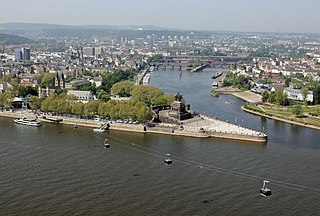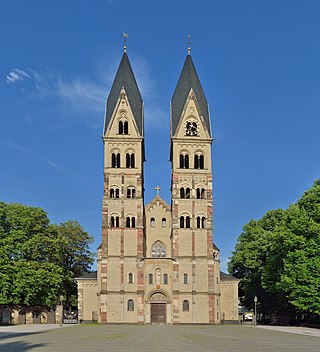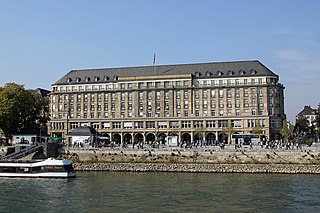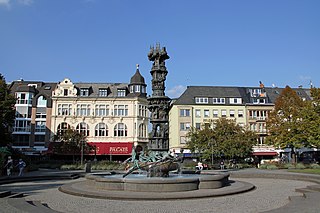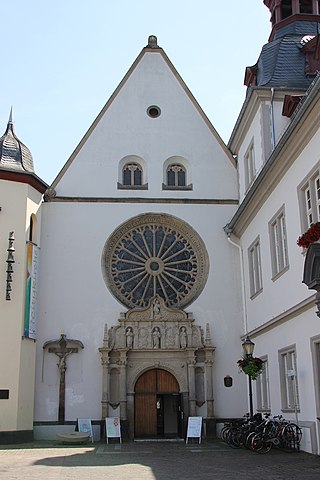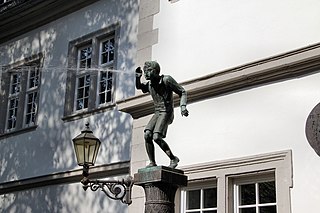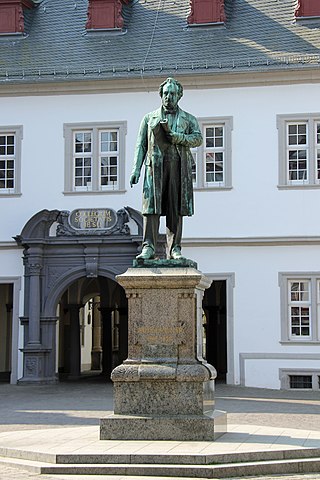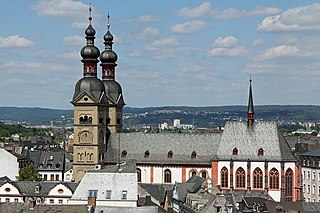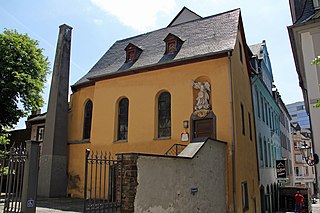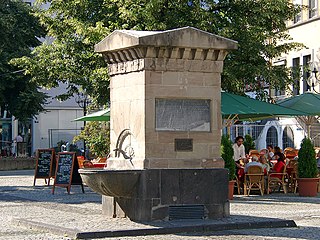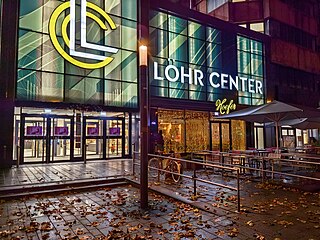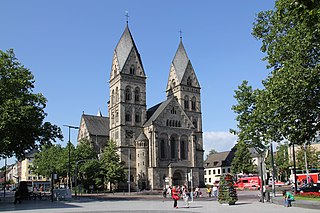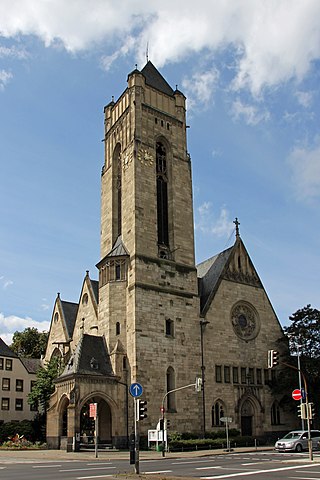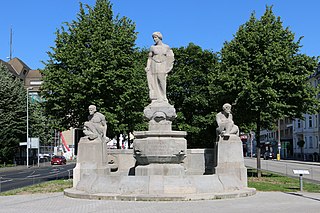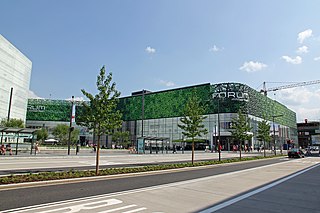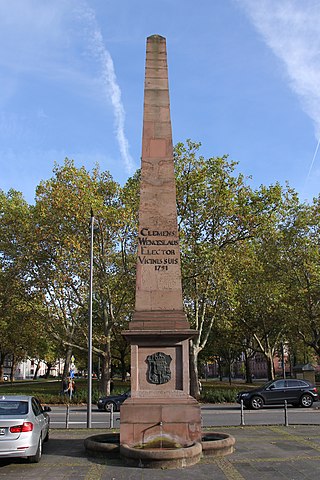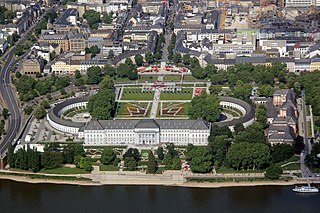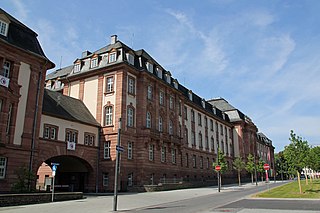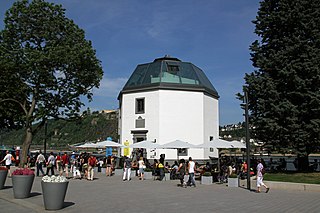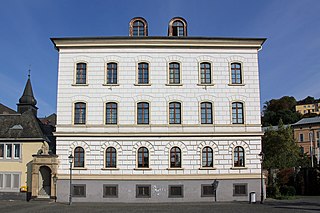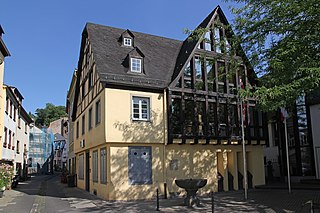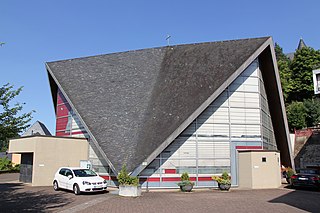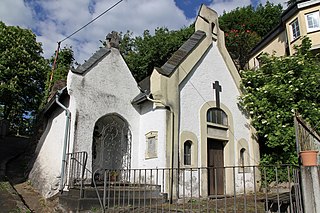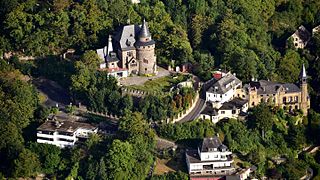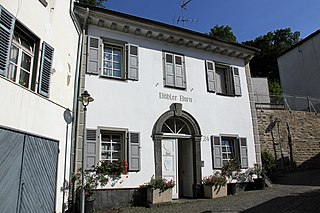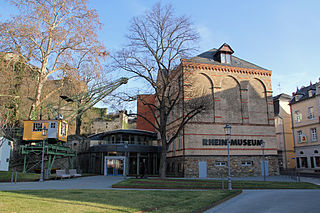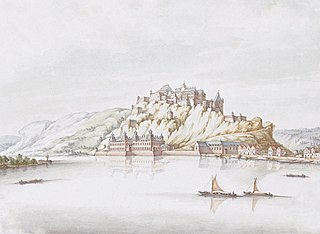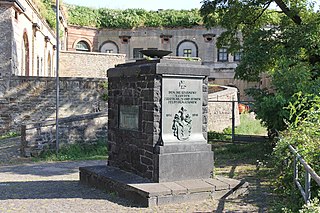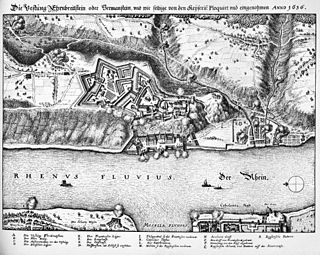Self-guided Sightseeing Tour #3 in Koblenz, Germany
Legend
Tour Facts
7.9 km
203 m
Experience Koblenz in Germany in a whole new way with our free self-guided sightseeing tour. This site not only offers you practical information and insider tips, but also a rich variety of activities and sights you shouldn't miss. Whether you love art and culture, want to explore historical sites or simply want to experience the vibrant atmosphere of a lively city - you'll find everything you need for your personal adventure here.
Activities in KoblenzIndividual Sights in KoblenzSight 1: Kaiser-Wilhelm-Denkmal
The Deutsches Eck is the name of a promontory in Koblenz, Germany, where the Mosel river joins the Rhine. Named after a local commandry of the Teutonic Order, it became known for a monumental equestrian statue of William I, first German Emperor, dedicated in 1897 in appreciation of his role in the unification of Germany. One of many Emperor William monuments raised in the Prussian Rhine Province, it was dismantled on the orders of the French military government immediately after the Second World War, and only the plinth was preserved as a memorial. Following German reunification, a replica of the statue was erected on the pedestal after controversial discussions in 1993. It is today a Koblenz landmark and a popular tourist attraction.
Sight 2: Deutsches Eck
Deutsches Eck may refer to:The union of the Rhine and Moselle with a monumental equestrian statue, see Kaiser Wilhelm Monument at the Deutsches Eck (traffic), a corridor between Salzburg and Kufstein
Sight 3: Basilika Sankt Kastor
The Basilica of St. Castor is the oldest church in Koblenz in the German state of Rhineland Palatinate. It is located near Deutsches Eck at the confluence of the Rhine and the Moselle. A fountain called Kastorbrunnen was built in front of the basilica during Napoleon's invasion of Russia in 1812. Pope John Paul II raised St. Castor to a basilica minor on 30 July 1991. This church is worth seeing for the historical events that have occurred in it, its extensive Romanesque construction and its largely traditional furnishings.
Sight 4: Koblenzer Hof
The former Grand-Hotel Coblenzer Hof is a monumental hotel building in the Rhine facilities of Koblenz. Today, the building houses the Federal Office of Bundeswehr Equipment, Information Technology and In-Service Support (BAAINBw), but due to the risk of collapse, most of the building cannot be used. Together with the neighbouring Prussian government building, it forms an ensemble on the banks of the Rhine that characterises the cityscape.
Sight 5: Historiensäule
The History Column is the essential part of a fountain on Josef-Görres-Platz in the old town of Koblenz. It was given to the city in 1992 by the state of Rhineland-Palatinate on the occasion of its 2000th anniversary. However, the fountain created by the sculptor Jürgen Weber, including the history column, was not completed and handed over to the city until 1 June 2000 due to illness. The 10.59-metre-high, 3.6-tonne and 1.25-million-DM column tells the moving 2000-year history of the city of Koblenz in ten pictures from Roman times to the present day.
Sight 6: Jesuitenkirche
The Jesuit Church of St. John the Baptist, today also called Citykirche, is a branch church of the Catholic parish of St. Kastor in Koblenz. It stands on the site of the 17th-century church on Jesuitenplatz, which was destroyed in 1944, next to the former Jesuit college, which now houses the Koblenz town hall. The patron saint of the church is John the Baptist.
Sight 7: Schängelbrunnen
Schängel is a dialect name (Ortsneckname) for the boys born in the city of Koblenz. Koblenz is also often referred to as the "Schängel city". In 1914, a carnival song was dedicated to the Schängeln and in 1941 a fountain was built for them in the town hall courtyard, which became a landmark of the city.
Sight 8: Johannes-Müller-Denkmal
The Johannes Müller Monument in Koblenz is a monument in honor of the physician Johannes Müller, who was born in the city. It is located in the old town in the center of Jesuitenplatz in front of the town hall of the city of Koblenz.
Sight 9: Liebfrauenkirche
The Church of Our Lady is a Catholic church in the center of the old town of Koblenz. Together with the other two Romanesque churches, the former collegiate churches of St. Kastor and St. Florin, it shapes the silhouette of the old town. The beginnings of the church, which is located at the highest point of the old town, date back to the 5th century. From the late Middle Ages to the French Revolution, it was the main parish church of Koblenz. It bears the patronage of Mary, the mother of Jesus, and is a major work of medieval sacred architecture on the Middle Rhine.
Sight 10: Michaelskapelle
The Michaelskapelle is a former cemetery chapel in the old town of Koblenz. The chapel is located right next to the Church of Our Lady and bears the patronage of the Archangel Michael.
Sight 11: Ehemalige Stadtkommandantur Koblenz
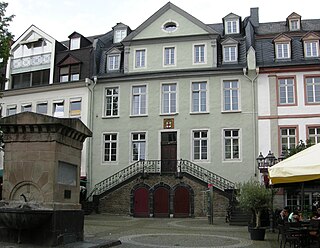
The former Stadtkommandantur Koblenz is a building in Koblenz, Germany. The front is located on the Am Plan square. The building has been used over time as both a town hall and a fire station. Today it is a residential building. The building is an example of strict Baroque architecture based on the French model, which characterized Koblenz at the beginning and in the last third of the 18th century.
Sight 12: Brunnen am Plan
The fountain Am Plan is a classicist fountain in the old town of Koblenz on the square Am Plan. In addition to the obelisk on Deinhardplatz and the Castor Fountain, the Am Plan fountain is one of the last testimonies to the early water supply in Koblenz.
Sight 13: Löhr-Center
The Löhr-Center is a shopping center in the city center of Koblenz. It was opened in 1984 to the north of the Herz-Jesu-Kirche. The operator of the Löhr Center is the ECE Group, which also operates the Forum Mittelrhein on Koblenz's central square.
Sight 14: Herz-Jesu-Kirche
The Herz-Jesu-Kirche is a Catholic church in the old town of Koblenz, which was built as part of the southern expansion of the city from 1900 to 1903. It is one of the most important neo-Romanesque sacred buildings in Germany. North of the parish church is the Löhr Center, an inner-city shopping center. The church is dedicated to the Sacred Heart of Jesus.
Sight 15: Christuskirche
The Christuskirche is a Protestant church in Koblenz, Germany. It is the first new Protestant church building in Koblenz, which was completed in 1904 in the course of the southern expansion of the city, and belongs to the Koblenz church district of the Evangelical Church in the Rhineland.
Sight 16: Barbara-Denkmal
The Barbara Monument, also known as the Artillery Monument, is a monument inaugurated in 1907 on the Kaiser-Wilhelm-Ring in Koblenz. It was built in honour of the soldiers of the Rhenish Field Artillery Regiment No. 8, which was stationed in Koblenz from 1820 to 1887, who died in the wars of unification of the 19th century. The war memorial was damaged in the air raids on Koblenz and finally dismantled in 1956 in the course of road construction work. In autumn 2014, the restored monument was re-erected near its original location.
Sight 17: Forum Mittelrhein
The Forum Mittelrhein is a shopping center on the Zentralplatz in Koblenz, Germany. The shopping center was built by ECE Projektmanagement, which already operates the Löhr Center in Koblenz, and opened on September 26, 2012. Next to it is the Forum Confluentes, a cultural building in which the Middle Rhine Museum, the Koblenz City Library, the Romanticum and the Tourist Information Office found a new home on 20 June 2013.
Wikipedia: Forum Mittelrhein (DE), Website, Yelp, Foursquare
Sight 18: Clemensbrunnen
The Clemensbrunnen is a fountain in the old town of Koblenz, Germany. The fountain, built in 1791, originally stood on Clemensplatz and was connected to the first electoral water pipe. Since 1970, it has been standing on Deinhardplatz in front of the theater. It received its name from its builder, the last Elector of Trier, Clemens Wenzeslaus of Saxony.
Sight 19: Kurfürstliches Schloss
The Electoral Palace in Koblenz, was the residence of the last Archbishop and Elector of Trier, Clemens Wenceslaus of Saxony, who commissioned the building in the late 18th century. In the mid-19th century, the Prussian Crown Prince had his official residence there during his years as military governor of the Rhine Province and the Province of Westphalia. It now houses various offices of the federal government.
Sight 20: Struktur- und Genehmigungsdirektion Nord
The Structure and Approval Directorate North in Koblenz is a higher state authority that is responsible for certain tasks in the north of the state of Rhineland-Palatinate as well as for some tasks throughout the state.
Wikipedia: Struktur- und Genehmigungsdirektion Nord (DE), Website
Sight 21: Pegelhaus
The Pegelhaus is a former Rhine crane in the Rhine facilities of Koblenz, which is now used as a Rhine gauge and restaurant.
Sight 22: Konradhaus
The Konradhaus is a cultural monument in Koblenz-Ehrenbreitstein, which was built in 1874 as a casino and officers' dormitory. After that, it was used by the Capuchin monastery in Koblenz and as a theatre.
Sight 23: Klosterkirche St. Franziskus, St. Philippus Ap. und Karl Borromäus
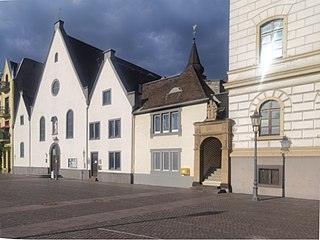
The Capuchin Monastery of Koblenz was a monastery in Koblenz, which was operated from 1627 to 2008 with interruptions by Capuchins. The monastery in the Ehrenbreitstein district was the seat of the provincial administration of the Rhenish-Westphalian Order Province from 1908 to 2007. The monastery complex includes the baroque church of St. Francis. Since 2013, parts of the monastery have been used by a convent of the Teutonic Order.
Sight 24: Mutter-Beethoven-Haus
The Birthplace of Beethoven's mother is a cultural heritage monument in Ehrenbreitstein, on the River Rhine opposite Koblenz, in Rhineland-Palatinate, Germany. Maria Magdalena Keverich, mother of the composer Ludwig van Beethoven, was born here in 1746; it is now a museum.
Sight 25: Heilig-Kreuz-Kirche
The Holy Cross Church is a Catholic church in Koblenz, Germany. The former parish church in the Ehrenbreitstein district was built between 1962 and 1964 on the site of a predecessor building from the 18th century. The neighbouring Heribert Tower has served as the church's bell tower since 1848. The church is dedicated to the Holy Cross, on which Jesus died.
Sight 26: Klausenbergkapelle
The Klausenberg Chapel is a chapel in Koblenz, Germany. The Marien-Kapelle, built in the 19th century, stands in the Ehrenbreitstein district and has a memorial plaque for the Electoral Trier lieutenant Freiherr Arnold von Solemacher (1766–1795), who died here in 1795.
Sight 27: Rheinburg
The Rheinburg is a castle-like villa in Koblenz, Germany. It is located in the Ehrenbreitstein district and goes back to the Klausenberg plant, which was built as part of the Ehrenbreitstein city fortifications between 1827 and 1833. Thus, this caponier belonged to the Niederehrenbreitstein system of the Prussian fortress of Koblenz.
Sight 28: Dähler Born
The Dähler Born (spring in the valley) is a well house for a sour water spring in Koblenz. The water from the spring in the Ehrenbreitstein district is a Na-Mg-Ca-HCO3 acidulant.
Sight 29: Rheinmuseum
The Rhein-Museum Koblenz is a cultural history museum in Koblenz that shows life on the Rhine from various aspects. Founded in 1912, the museum focuses on shipping, ecology, hydrology, Rhine romanticism, tourism, economy and history.
Sight 30: Dikasterialgebäude
The Philippsburg palace ) was a former Baroque-style palace in Ehrenbreitstein, a district of the city of Koblenz in Germany. It was situated on the banks of the Rhine river, below the Ehrenbreitstein Fortress. Constructed between 1626 and 1632 by Philipp Christoph von Sötern (1567–1652), Prince-Elector of Trier, it served as the main residence of the Archbishops and Prince-Electors of Trier until 1786. The palace had similarities to Schloss Johannisburg in Aschaffenburg, as they have the same architect.
Sight 31: Denkmal für das Infanterie-Regiment „von Goeben“ Nr. 28
The Monument to the Infantry Regiment "von Goeben" No. 28 is a monument in memory of the fallen soldiers of the Infantry Regiment "von Goeben" No. 28. The monument, erected in 1930, is located in the courtyard of Fort Helfenstein in Koblenz, which is located in front of Ehrenbreitstein Fortress. After the partial destruction in 1945, only the base of the monument remains as a memorial stone.
Wikipedia: Denkmal für das Infanterie-Regiment „von Goeben“ Nr. 28 (DE)
Sight 32: Wache am Helfenstein
Helfenstein Castle is a defunct spur castle on the Ehrenbreitstein in Koblenz, Germany. It was built around 1160 on a mountain spur south of the Electoral Trier castle of Ehrenbreitstein by the von Helfenstein family. Both castles were separated from each other by a deep gorge. The family initially served on the Ehrenbreitstein, but expanded its domain around 1300 with the construction of the Sporkenburg and Mühlenbach Castle.
Share
How likely are you to recommend us?
Disclaimer Please be aware of your surroundings and do not enter private property. We are not liable for any damages that occur during the tours.
GPX-Download For navigation apps and GPS devices you can download the tour as a GPX file.
